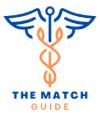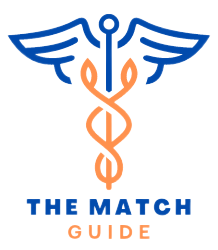How to Complete ERAS Supplemental Application and Does it Increase Interview Offers?
How to Complete ERAS Supplemental Application and Does it Increase Interview Offers?
The ERAS Supplemental Application is an important component of the ERAS application process for medical residency programs. It is designed to provide additional information about an applicant’s qualifications, interests, and experiences. When completing the Supplemental Application, it is important to remember that programs will be using this information to evaluate your fit for their program and your potential as a resident. Therefore, it is important to be honest, concise, and reflective in your responses. Additionally, it is important to pay attention to the specific questions and formatting requirements of each program’s Supplemental Application, as they may vary. Overall, the goal of the Supplemental Application is to provide programs with a well-rounded view of your qualifications and potential as a medical resident. In this article, we have disssected all the sections of ERAS supplemental application in detail.
1. Past Experiences:
The past experiences section in the ERAS (Electronic Residency Application Service) application is a crucial part of the residency application process. It is intended to help applicants communicate their most meaningful experiences and the specific qualities they will bring to a residency program. The past experiences section has two parts: meaningful experiences and other impactful experiences.
Meaningful experiences are up to five experiences that have had a significant impact on the applicant. For each experience, the applicant is required to provide descriptive information such as the position title, organization name, approximate start and end dates, frequency of participation, and setting. Additionally, the applicant must select an experience type, primary focus area, and key characteristic, as applicable, and write a short essay about why the experience was meaningful and how it impacted them.
Other impactful experiences are any experiences that have had a significant impact on the applicant’s life. These experiences could be related to their family, financial, or educational background, the community setting in which they grew up, or general life circumstances. This question is not intended for all applicants and programs do not expect all applicants to respond to it.
Responses to past experiences questions will be shared with the participating programs to which the applicant applies in all participating specialties except Emergency Medicine and Obstetrics and Gynecology.
When completing the past experiences section, it’s important to draft a complete list of experiences for the MyERAS application. The supplemental application allows applicants to highlight and expand upon experiences in the MyERAS application and emphasize important information about them. It’s also important for applicants to reflect and identify experiences that communicate who they are, what they are passionate about, and what is most important to them. Programs are not interested in one type of applicant, so a variety of experiences, passions, and characteristics are valued.
Applicants should consider their meaningful experiences as a complete set and use them to paint a picture of themselves. While it’s not necessary to tag every experience to a primary focus area and key characteristic, the set of meaningful experiences should communicate what is most important or has most impacted the applicant and the specific qualities they will bring to a residency program.
Finally, applicants should share any other impactful experiences that have affected their journey to residency, if applicable. However, it’s important to carefully consider whether this question is applicable to them and if they should respond to this question using the examples provided in the appendix. Approximately 30% of applicants did not reply to this question in the 2022 ERAS cycle, so programs do not expect all applicants to reply to it.
How do programs use this information?
Programs are generally looking to build a well-rounded group of residents and are not just looking for one type of applicant. This section helps program understand the applicant’s passions, how their experiences and interests align with program goals, and the level of self-reflection the applicant has. Programs will use the information, but it may be given a low weight in the overall selection making decisions. Some programs may use the impactful life experience essay to provide additional context to the applicant’s application.
2. Geographic Experiences:
The geographic preferences section is a section of the residency application process that allows applicants to communicate their preferences or lack of preferences for particular geographic divisions and urban or rural settings. This section is designed to help match applicants with programs that align with their desired location and environment.
The geographic division preference question allows applicants to select up to three geographic divisions they prefer or indicate that they do not have a preference. They also have the opportunity to explain their selection in an essay. If an applicant indicates a preference for a division, their preference for that division and corresponding essay will be shared only with programs in that division. If an applicant indicates “I do not have a division preference,” this selection and corresponding essay will be shared with all programs. If an applicant does not respond to the question, no division preference information will be shared with any programs.
The setting preference question asks applicants to indicate a degree of preference for an urban or rural setting or indicate that they do not have a preference. They also have the opportunity to explain their preference or lack of preference in an essay. If an applicant indicates a preference or lack of preference for setting, their preference (or lack of preference) and corresponding essay will be shared with all programs.
It is important to note that responses to the geographic preferences section will be shared with the participating programs to which you apply across all specialties except Emergency Medicine and Obstetrics and Gynecology. Additionally, it is important to refer to the appendix to ensure that you know which U.S. Census division includes the states you prefer.
In order to complete this section effectively, it is important to be honest about your preferences and explain why you have or do not have a preference. Programs understand that other factors and program characteristics outweigh a geographic preference for some applicants. If you have no preference for a rural or urban setting, select “no preference” on the rating scale.
3. Program Signaling:
Program Signals is a section in the residency application process that allows applicants to express their interest in a particular residency program. This section is intended to be used by programs as one way to decide which applicants to invite for an interview.
When applying for a residency, applicants will be asked to send signals for each specialty they are applying to. The number of signals available will vary depending on the specialty. Specialties determine the number of signals based on their goals for signaling, the number of programs available, and the average number of applications submitted for that specialty.
Only the programs that an applicant sends a signal to will be able to see the signal. If an applicant does not signal a program or does not respond to the program signaling question, the program will not see any signal information.
When deciding where to send signals, applicants should consider the strength of their application, their ultimate career goals, and their personal circumstances. They should also consider the relative competitiveness, mission, structure, curriculum, and goals of the programs they are applying to. It’s recommended that applicants work with their advisors, faculty, and resident mentors when deciding where to signal.
Applicants can use resources such as the Residency Explorer™ tool, results of the 2021 NRMP Program Director Survey, program listings in the MyERAS application, and the Residency Preference Exercise to help them decide where to signal.
It’s important to note that specialties have different policies for signaling home programs or programs where an applicant completed an in-person clinical sub-internship or away rotation. So, review the specialty preferences in detail.
In the 2022 application cycle, program signaling was found to have an impact on interview offers for certain specialties. According to data, on average, applicants who sent a program signal had a higher chance of being invited to interview for Dermatology, General Surgery, and Internal Medicine (Categorical) programs compared to those who did not send a signal. However, it’s important to note that programs use signals differently and results may vary. Sending a signal may increase the likelihood of an interview invitation but it does not guarantee one.
How do programs use geographical preferences and signaling information?
Programs used information from the geographic preferences and program signals sections in the 2023 application cycle to filter and make selection decisions. Surveys and focus groups from the first year of the pilot showed that participating programs likely use geographic preferences and program signals in their selection process.
Over 70% of programs used geographic preferences and over 80% used program signals as part of a holistic process to decide whom to invite to interview, as a tie-breaker in deciding whom to invite to interview, and to prepare for interviews or stimulate questions during the interview. More than half of programs reported that geographic preferences information, program signals, or both helped them to identify applicants whom they would have otherwise overlooked.
- Cricket Run Rate
- Cricket Bating Tips
- Teen Patti Go
- Discover A World Of Possibilities With Gamdom India's Online Casino
- Teen Patti Joy
- Betln Exchange
- Betline Exchange
- Skyexchange.com Apk
- Sky Exchange App
- Tiger Exchange 247.com
- Hindi News Cricket
- Cricket News Today In Hindi
- Today Cricket News Hindi
- Hindi Cricket News
- Cricket In Hindi


